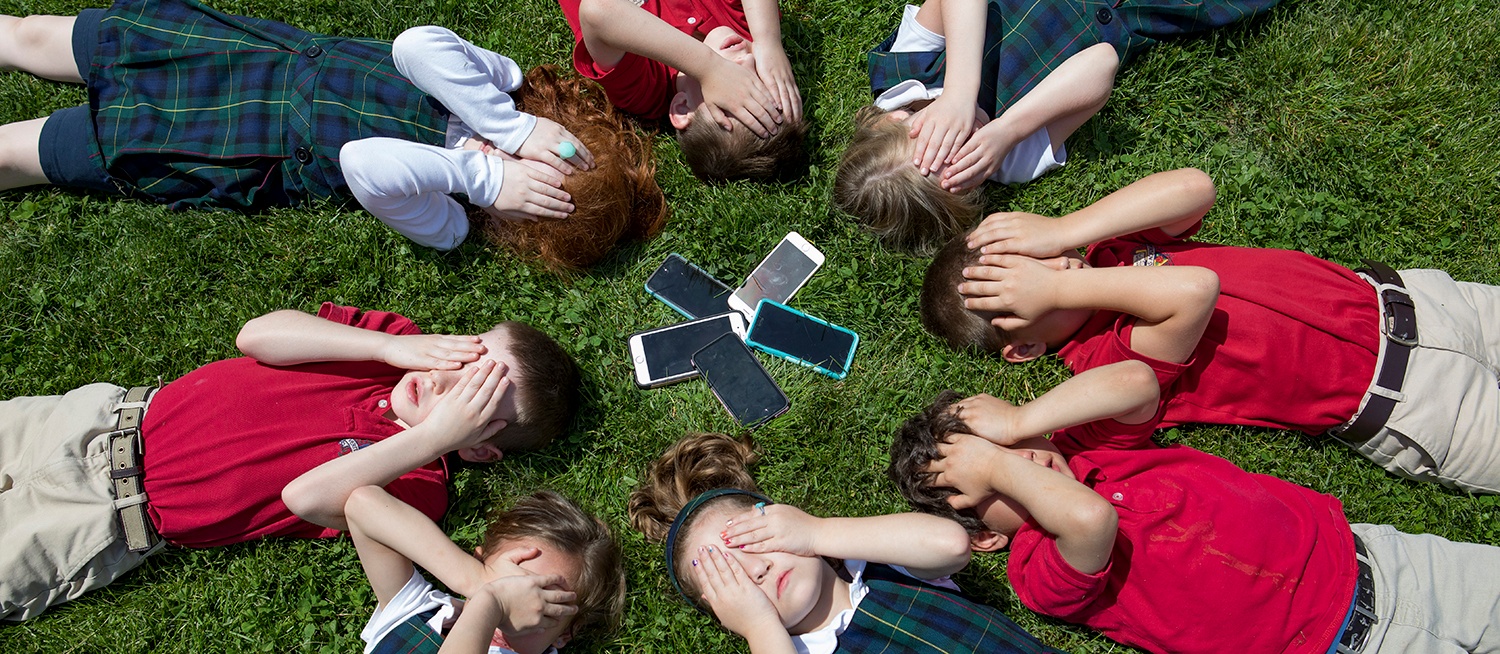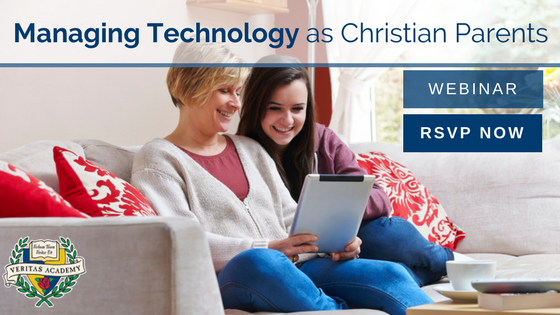 “Fine things are difficult.” –Plato
“Fine things are difficult.” –Plato
In this quote from Plato, there is an interesting riddle. What does he mean by “fine things?” And how difficult are they?
Let’s try another translation, justified by the Greek: “Beautiful things are difficult.” And another: “Good things are difficult.”
If we put them together, we could come up with the “New Living Translation” of Plato’s quote as follows: “It is very difficult to achieve and preserve things of the most lasting value.” If you’ll allow me this translator’s liberty, I think that nicely captures Plato’s meaning.
Why am I quoting an ancient Greek philosopher in an article about technology use at school? I believe its relevance to our education endeavors is profound as we examine the purpose behind Veritas Academy's standards.
Device-Free School Days
Current Veritas families may have noticed that Veritas Academy has recently instituted a new technology policy. The policy significantly alters what a day looks like in the life of many Veritas students. And in some respects, I’m sure our students find their new day more challenging, and possibly less entertaining.
In summary, the policy states that students must keep their personal electronic devices (phones, MP3 players, handheld video games, etc.) in their lockers. They are not to be seen during the school day. Students are allowed to use laptops at the discretion of the teacher, but not smaller personal electronic devices.
So why did we decide to implement this new policy? I think that a significant part of our answer is to be found in the wisdom of Plato’s proverb.
Sacrificing Something Good for Something Better
If we are to pursue truth, goodness, and beauty it will require sacrifices. This is certainly something that parents sending their children to Veritas Academy understand. Sending your children to our school does require sacrifices. We are aware that there are many other options, and that each of them has its unique attractions. What we do hope, however, is that we are able to prove ourselves worthy of the sacrifices parents make to send their children to Veritas.
One of the ways that we can best do this is to create an environment that is conducive to learning. And yes, we know that learning and joy need to be connected. We want our children to rejoice in the process of learning. To this end, Veritas has always had a tradition of doing fun things to augment our learning: field trips (e.g. DC, New York), idiosyncratic ceremonies (like Shrove Tuesday and the smashing of the gourd), dances and feasts (like the Colonial Ball and the Madrigal Feast), and oddball games (like Pokenberry Falls). To quote an old proverb (that predates Kubrick’s The Shining), “All work and no play makes Jack a dull boy.”
We don’t want dull children. We do, however, want engaged students. As such, we believe that students sacrificing access to their smartphones during the day should help them better learn to love fine things, without making them dull.
 Vain Amusement vs. Lasting Fruit
Vain Amusement vs. Lasting Fruit
I will admit, as the Dean of Students, that I am influenced by ideas from Neil Postman’s famous book Amusing Ourselves to Death (everyone living in the 21st century should read this, as it’s even more relevant today than when it was written). In that book, Postman argues that democratic societies can suffer terribly from the effects of cultural decadence because they tend to promote, often without sufficient restraint, the notion that human flourishing is synonymous with instant and immediate pleasure. Amusements can become toxins that increasingly inoculate us from an ability to appreciate the harder-won joys, the joys that are the fruit of good, faithful, honest, and sustained labor.
An analogy immediately comes to mind. In order to master an activity, students must sacrifice many other pleasures. Swimmers must jump into a cold pool at 6:00 AM, day after day. Musicians must practice while friends are frolicking in the late afternoon sun. Wrestlers carefully regulate their diets to make weight. Ballerinas practice with aching joints and blistered feet. Writers agonize over words, sentences, and paragraphs until they’ve got it “just right.”
Indeed, fine and worthwhile things are difficult. In order to achieve excellence, virtue is required of us. And virtue is simply the sustained habit—by God’s grace—of repeating good and excellent acts.
As a training ground, we believe that Veritas Academy better serves parents and students by having them use their devices outside of the hours of the school day. We do this not because we are anxiously reacting in a rearguard way to the purported evils of technology. Rather, we are hoping that in deferring the pleasure of using devices during the school day, we will better encourage our students to pursue true, good, and beautiful things.
Fostering a Fellowship of Loving, Serving, & Thinking Students
There is another, and possibly more important, reason to limit the use of devices during the school hours. At Veritas Academy we are trying to produce not only thinking students, but also loving and serving students. An essential part of the development of a young gentleman or lady is the ability to see and attend to the needs and interests of others. This requires developing habits of “other-centeredness” to combat the tendency of the fallen ego to become self-centered.
Again, Postman is helpful. Constantly attending to amusements can make us believe that trivial self-indulgences are the daily bread of human existence. And yet, we discover from the life of Christ that serving others, in love, and ultimately serving God as a sacrifice of praise, is the most maximally fulfilling life. That is why we believe that our technology policy will better encourage our students to live with one another in a Trinitarian, social way and thus it will (in some small way) train them for the “life together” or koinonia that is the hallmark of genuine Christian community.
We should always be reminded that Jesus prayed, in his high priestly prayer, that we might learn to be one (just as he and the Father are one) so that the world might know that we are his disciples (John 17).
If you have any questions about our policy, please feel free to e-mail me or call me at the contact information below.
In the peace of our Savior,
Graham Dennis
Dean of Students
Veritas Academy
gdennis@veritasacademy.com
717-556- 0690 or 717-847- 6605 (cell)










